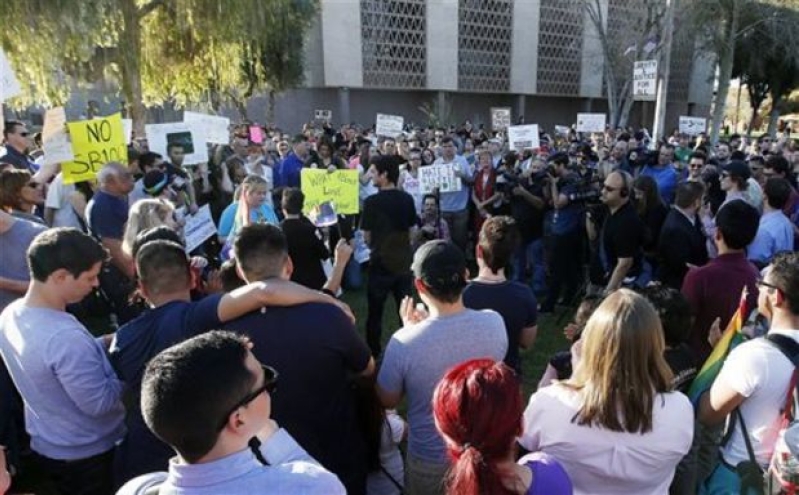
The Arizona legislature recently passed SB1062, a bill which gives business owners in the state the right to refuse service because of religious beliefs. Although gay-rights activists have stirred up quite the controversy over the legislation, supporters of the bill maintain that the bill is meant to protect religious freedom and not to promote discrimination. Republican Governor Jan Brewer will have until the end of the week to either sign the legislation into law or veto it.
Arizona's SB1062 would effectively broaden the definition of "the exercise of religion" to mean that businesses in the state have the right to deny services for religious reasons. Fox News reports that the bill reads:
"'The exercise of religion' means the practice or observance of religion, including the ability to act or the refusal to act in a manner substantially motivated by a religious belief, whether or not the exercise is compulsory or central to a larger system of religious belief."
While opponents of the bill protest that it would serve to increase discrimination in the state, Arizona Senator Steve Yarborough maintains that the bill is meant to prevent discrimination against "people who are clearly living out their faith." SB1062 was passed after a photography studio who had refused services to a same-sex couple for their wedding ceremony and a Christian bakery which refused to bake a same-sex wedding cake were taken to court.
The New York Times reports that Governor Brewer is being pressured by both gay-rights activists and republican governor hopefuls to veto the bill. United States senator John McCain recently tweeted that he hopes Brewer will veto the measure, and three republican state senators who changed their mind about the bill in light of the national controversy wrote to the governor urging her to veto the legislation. "While our sincere intent in voting for this bill was to create a shield for all citizens' religious liberties, the bill has instead been mischaracterized by its opponents as a sword of religious intolerance," they wrote.
Those supporting the bill are calling attention to over-dramatization from opponents - some of whom have even suggested that the Super Bowl, which is scheduled to be hosted in Arizona next year, should be moved to a different state if the bill were passed.
Governor Brewer will have until Friday to make her decision.






